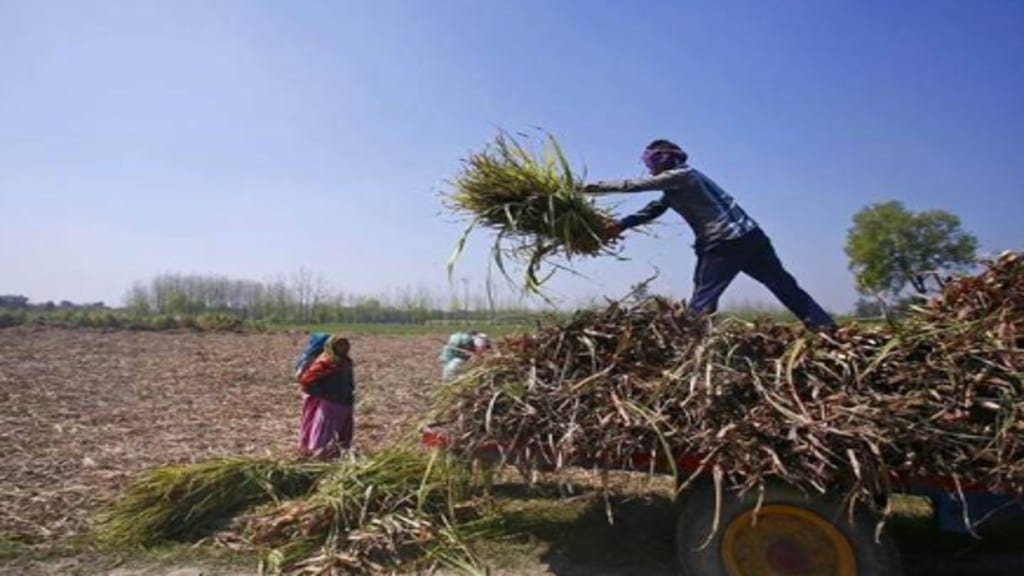By Sanjiv Kanwar
India, one of the top 17 megadiverse countries in the world, boasts an extraordinary range of biodiversity with varied ecosystems including deserts, forests, and grasslands. Ranking eighth in the world on the biodiversity index, our country is home to myriad ecosystems, species, and genetic resources, underscoring the critical importance of sustainable agricultural practices. With a landmass of approximately 3.287 million square kilometres, of which nearly 60 per cent is arable land, India’s agricultural sector plays a pivotal role in its economy and the sustenance of its population. This extensive agricultural landscape, coupled with the urgent need to address soil degradation, water scarcity, and climate change impacts, has propelled India to the forefront of a global movement advocating for regenerative agriculture.
Understanding the scale of climate impact
Biodiversity is crucial for agriculture and food security, providing genetic resources for crops and livestock. India, the seventh-largest country by land mass, plays a significant role in global food production due to its diverse climate and rich agrarian culture. The country’s agricultural GDP reached a record high of Rs 7,086.18 billion in Q4 2022, accounting for 14 per cent of the economy and 42 per cent of total employment.
Yet, the agrarian economy faces significant challenges, including habitat loss, pollution, and climate change. Severe weather events, such as cyclones and floods, threaten crop productivity and exports, while extreme heat events are becoming more frequent. Temperatures are soaring to 40-50 degrees Celsius in some regions, highlighting the need for a sustainable approach to agriculture. This approach must revitalize soil health, enhance biodiversity, and mitigate climate impacts, making it essential to rethink agriculture for a sustainable future.
This has substantial economic impacts, notably in terms of water shortages for agriculture. India is currently experiencing droughts and heat waves, which further exacerbate crop damage and threaten the country’s food security, economic stability, and overall well-being. In fact, cultivation of certain commodities contributes in excess to water footprint, soil erosion, and greenhouse gas emissions (GHGs), amplifying the environmental challenges we face.
Depleting resources call for decisive action
India is facing a water crisis, with 89 per cent of extracted groundwater used for irrigation. Overuse by farmers is depleting groundwater tables and polluting waterways. Additionally, excessive fertilizer use is degrading soil fertility and contaminating groundwater. Despite high agricultural exports, India’s environmental health is suffering due to water, soil, and greenhouse gas (GHG) issues. With a population of 1.4 billion, including a large youth demographic and rapidly growing economy, India must prioritize climate and biodiversity conservation. Enhancing farming practices is crucial to address these challenges, balancing food production with environmental sustainability and reducing emissions.
Regenerative agriculture offers a solution – promoting sustainability by conserving biodiversity, improving soil and water health, and mitigating climate impacts. Adopting regenerative practices ensures a sustainable future, rejuvenating farmlands, enhancing biodiversity, and ensuring food security. This commitment reflects a dedication to ecological health and farmers’ well-being, fostering a nature-positive food future through prosperity, resource efficiency, and environmental sustainability.
What’s good for the farm is good for the future
This approach aims to reduce carbon emissions, improve crop resilience, and enhance soil fertility. It also promotes efficient use of resources, protects natural habitats, and improves farmers’ livelihoods. Balanced crop nutrition is crucial, achieved through optimal application of organic and mineral nutrients. Integrating crop and livestock systems and using organic biomass and lower-carbon fertilizers is recommended to maintain soil health and promote soil organic content.
A modern agricultural system requires a range of products and services to ensure strategic mineral fertilizer use, food quality, and soil preservation. Combining organic and mineral nutrients promotes sustainable agriculture. We advocate for precise nutrient management, prioritizing organic sources and supplementing with minerals based on soil analysis. Specialty products like water-efficient fertilizers aid in sustainability efforts.
Also read: Addressing Water Scarcity Through Sustainable Agricultural Practices
To transition to regenerative farming practices, farmers must be supported by a market that values their efforts. This requires redistributing risks, costs, and benefits equitably, through economic incentives like crop price premiums and government subsidies. Long-term strategies like insurance schemes and balanced crop nutrition, combining organic and mineral sources, are also crucial. Corporate advocacy for strategic fertilizer use and digital solutions are vital. Measurable progress indicators and farmer-friendly metrics, such as management-based schemes, are essential for monitoring progress. India can champion sustainable practices by prioritizing targets like Nitrogen Use Efficiency (NUE) and sustainable crop nutrition management, empowering farmers and leading towards a resilient food future.
(The author is Managing Director, Yara South Asia. Views expressed are the author’s own and not necessarily those of financialexpress.com.)

